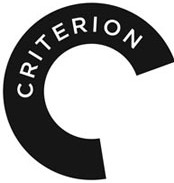What’s scarier than the exploitation of capitalist culture, our societal collapse into a dystopian nightmare, and our inexorable march into cosmic obliteration? Answer: Nothing. And so MMC! celebrates this All Hallow’s Eve with a trio of animated mind-melters from Canadian animator Nick Cross. First up is The Pig Farmer (2010) – “a simple tale of a wayward soul, awash in an ocean of tragedy and regret.” Well, that and various pork-related gags. Don’t be fooled by the fairy tale-vibe and cutesy look; this short ain’t for the kids!
Next up is Perihelion (2013), “a sort of animated tone poem” inspired by German Expressionist and Surrealist painters of the early 20th Century like Otto Dix, Richard Oelze, Ingrid Griebel-Zietlow, Rudolf Schlichter, and Max Ernst, as well as Francisco Goya. The short operates as something of a Möbius strip tracking a cycle of human downfalls. The effect is amazing in execution and awful in vision. You’re welcome!
Lastly, we wrap up this dispiriting tribute to Nick Cross with The Clockwork Elves (2020). Cross’s summary of the short is questionable: “The Clockwork Elves could be a pyschotropic exploration of spirituality and death – or it could be a tale of a little goofball hopped up on goofballs. Either way — it’s a cartoon.” Made single-handedly over seven years, the short takes the animator’s critiques of late capitalism deeper into the psychedelic nightmare than ever before, creating a vision quest montage that is amazingly spectacular, shockingly vibrant, and exceptionally apocalyptic. This is the squished and squashed, cutesy-pie version of Pearl Jam’s “Do the Evolution” video and it’s just as bracing.
If all of this is a bit too nightmarishly heavy for you, then MMC! recommends revisiting Over the Garden Wall (2014), a modern Halloween classic that perfectly celebrates American colonial folklore, historical commercial art, and East Coast animation. Cross worked as the series’ art director and it should be required viewing for any Halloween fanatic.
STAY SAFE KIDS, AND HAVE A

